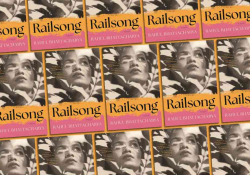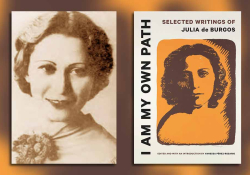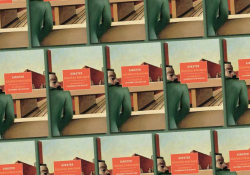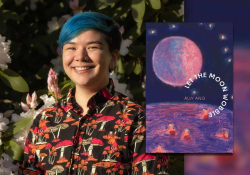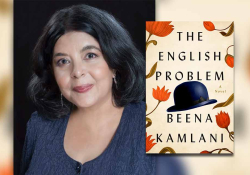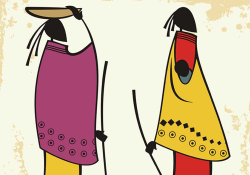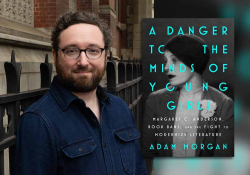Breaking Bourgeois Taboos in Cairo: Ihsan Abdel Quddous’s A Nose and Three Eyes
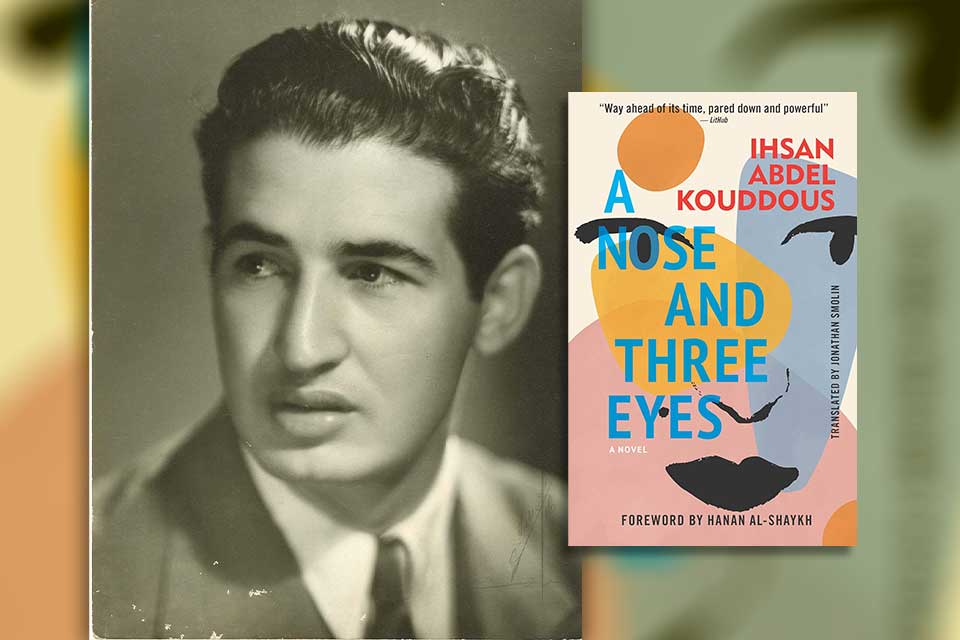 Five or six years ago, I was reading Ihsan Abdel Quddous (1919–1990) with my Arabic teacher and thought of writing an article about him in English, but I found only one translation on Amazon. I was puzzled. Why had one of the best-known Egyptian novelists gone untranslated? Had leftist Egyptian intellectuals steered Arabists away from him, dubbing him an aristocratic right-winger? Had he been unfairly stereotyped as a novelist who wrote only for teenage girls? Or had he simply been unlucky in the quixotic business of English publication? It was unclear.
Five or six years ago, I was reading Ihsan Abdel Quddous (1919–1990) with my Arabic teacher and thought of writing an article about him in English, but I found only one translation on Amazon. I was puzzled. Why had one of the best-known Egyptian novelists gone untranslated? Had leftist Egyptian intellectuals steered Arabists away from him, dubbing him an aristocratic right-winger? Had he been unfairly stereotyped as a novelist who wrote only for teenage girls? Or had he simply been unlucky in the quixotic business of English publication? It was unclear.
Because so many of Abdel Quddous’s novels have been made into movies, Egyptians know him by heart. (His film scripts sold like hot cakes in Egyptian cinema.) Abdel Quddous—a prominent journalist, prolific novelist, and editor of the well-known cultural magazine Rose Al-Youssef—was a champion of free expression and the rights of women throughout his life. At last receiving their due, two of his novels were recently published by Hoopoe, the imprint of AUC Press: I Do Not Sleep (2021) and A Nose and Three Eyes (2024). Both were translated by Jonathon Smolin. In A Nose and Three Eyes, first published in Arabic in 1963, Abdel Quddous dissects the relationships between men and women in a conservative society, sparing no one, even mothers.
It is not surprising that Abdel Quddous confronted these issues head-on, considering his family background. His mother—Fatma Al-Youssef, originally from a Lebanese family—started her career as an actress when she was a child, while his father, Mohamed Abdel Quddous, was a playwright. Fatma abandoned her acting career for journalism and started Rose Al-Youssef in 1925, which became an influential magazine, taking on the most relevant issues of the day, like the British occupation and the future of Egyptian democracy. Growing up, Abdel Quddous was surrounded by writers, actors, intellectuals, and other leading political figures of the day. He certainly wasn’t sheltered from the realities of sexuality, nor from economic or political problems. When he wrote an article in March 1954 challenging the Free Officers’ takeover of the Egyptian government, he was arrested by Abdel Nasser’s secret police and sent to prison, where he spent forty-five days in solitary confinement.
“In Egypt, Ihsan Abdel Quddous was the first to break the bourgeois taboo, writing about the sexuality of women.”—Sonallah Ibrahim
In an interview that I conducted with the veteran Egyptian novelist Sonallah Ibrahim in 2016, he commented about how daring Abdel Quddous’s novels were for the time: “In Egypt, Ihsan Abdel Quddous was the first to break the bourgeois taboo, writing about the sexuality of women. . . . Abdel Quddous’s books were not allowed in the homes of respectable families. My cousin used to have these books secretly.”
It is not hard to see why his novels might be stashed away in a cupboard. A Nose and Three Eyes is told from the viewpoint of three young girls who are having an affair with Dr. Hashim, an unmarried doctor in his forties. Besides their sexual awakening, all three girls struggle to become independent and evade their mothers’ plans for suitors. Abdel Quddous explores how repressed sexuality shelters in fantasy, delusion, obsession, and neurosis.
Part 1 is told from the first-person viewpoint of Amina, the most disturbed of the three girls, whose life is destroyed by her sexual obsession with Dr. Hashim. She is cynical and narcissistic for someone so young: “I was the most beautiful girl in Salah Al-Din Street in Heliopolis. Suitors started coming when I was fifteen.” Her mother has remarried and now has three other children. When Amina is sixteen, her mother arranges for her to be married to a thirty-six-year-old trader in Suez, ‘Abd Al-Salam—not cultured, educated, or from a well-known family, but rich. Young and immature, Amina is at first happy because she has gotten a ring with diamonds and would be engaged before her cousins. Once the engagement parties are over, she is repulsed by ‘Abd al-Salam’s unattractive face and body. She rebels.
When Amina hears about the handsome Dr. Hashim, she schemes to meet him, pretending to be sick. Seven months after her affair with Dr. Hashim, her fiancée insists they get married. The situation goes from bad to worse when she moves to Suez with her husband. Her mother-in-law and husband do their best to make her feel welcome in Suez, but she is haughty and rude to them and their friends. Idle, she surrenders to her fantasies about the charming physician. She lies about her whereabouts and schemes to meet him in his bachelor pad in Cairo. When she becomes pregnant, she is struck by the idea that she should be married to Dr. Hashim instead of ‘Abd Al-Salam. However, it is a shocking wake-up call when the doctor tells her that he does not want to marry her, even if the child might be his! Surprisingly, the birth of her daughter doesn’t soften her heart or distract her from her sexual obsession with him.
The situation becomes so intolerable that ‘Abd Al-Salam divorces her. She refuses to let the affair with the doctor go and tells friends and neighbors she is engaged to him. Even the scandals and gossip do not deter her obsession. She starts an affair with Muhammad, a lawyer, in order to forget Hashim, but because of her reputation, his family steers him away from her. Both men give her money and gifts for sexual favors. In the end, both relationships fail, and we see her as a prostitute at a nightclub at thirty.
Abdel Quddous explores how repressed sexuality shelters in fantasy, delusion, obsession, and neurosis.
The second “eye” is Nagwa Tahrir, whose mother is obsessed with her daughter’s beauty, rather than the daughter herself. Unlike Amina, Nagwa is a high achiever and does well in school. Her father is sixty, her mother in her fifties, and she is an only child. She says, “My mother loved me like a child loves a doll.” The theme of dolls recurs throughout the novel, just as girls are infantilized by their families and the society. Her mother arranges an engagement for Nagwa with her cousin, Adel, when she is only twelve, although the marriage is not consummated. When she is sixteen, her father has a stroke, and her mother becomes more controlling. Because of her father’s illness, Nagwa begins to lean more on Adel and spend less time with her mother. Then when her cousin breaks the engagement, she becomes depressed and refuses to leave her bed. Uneducated and superstitious, Nagwa’s mother summons sorcerers and magicians to cure her depression. Finally, Dr. Hashim is called and tells her that her medical problems are psychosomatic.
Her mother takes her to Zizi, a married woman, whose husband was rich and worked in Bani Suef. She is an informal matchmaker and knew many men. “My mother believed the role of women was to exploit men,” Nagwa comments. After haggling with Abd El-Fattah Bey, an older man with grown children, her mother makes a deal. He provides the family with a villa, new furniture, a cook, and a butler. The neighbors do not know the truth about his weekly visits to the villa, and he is known as “Uncle Abdu.” Uncle Abdu has her sit on his lap before he fondles her; she submits but feels detached, as if she were watching a movie.
When she develops rheumatic fever, Dr. Hashim is summoned again. Because of her condition he comes to see her frequently, and she falls in love with him. Then, Hashim and Uncle Abdu find out about each other, but Dr. Hashim still does not propose marriage. Eventually she frees herself from her mother, Dr. Hashim, and Abd El-Fattah and goes to the university. This is a more hopeful outcome for the girl than working as a prostitute in a nightclub like Amina.
The third “eye” is an impulsive Lebanese girl, Rihab, who is bored by the decadence of Beirut and comes to Cairo. She is hosted by a Lebanese family, the Muhi al-Dins, who are family friends. Their factory has been confiscated under Nasser, and they are living on limited resources. Spoiled and overindulged, she has little sympathy for others’ misfortunes and sees the Muhi al-Dins as old and grotesque characters. She is not interested when Muhammad Muhi al-Din talks about his money problems. “I didn’t come to Cairo to understand what was happening in Egypt,” she comments, “or what was happening to Lebanese families in Egypt.” Fortunately for her, her father’s money does grow on trees and she can enjoy herself with her Lebanese pals. Sometime after she has arrived, she meets Dr. Hashim. At forty-four, he is much older than her Lebanese friends, and she is charmed at first, but his possessiveness makes her uneasy.
Only twenty, she is naïve and carefree and falls into her host’s plot. The Muhi al-Din family convince her to smuggle their money and jewels out of Egypt in a suitcase to Beirut. She fancies herself a hero in this grand plan and plans to leave the bag at the Hilton, pretending that she has forgotten it. Then she will ask Dr. Hashim to deliver the bag when he visits Beirut. When she has returned to Beirut, however, she realizes the serious consequences for him if he gets caught smuggling money out of the country. Depressed, she realizes she doesn’t want to marry Dr. Hashim or anybody—that she wants to be free. Without telling her family, she returns to Cairo, gets the suitcase with the jewels, and takes it back to the Lebanese family. The affair with Dr. Hashim ends, but she realizes she could not live her life “moment by moment.” She becomes more serious about her life and takes a job, working in Lebanese television. It is fitting that her voice is the last one in the novel because she is the only one we see who is truly changed by her sexual adventures. She is cured of her ennui, matures, and develops into a professional, fully independent woman. As for the handsome doctor, there are few consequences for his philandering, but he, too, changes and finally marries a woman his own age.
The Cairo of the 1950s and ’60s described in A Nose and Three Eyes is much different from the Cairo of 2024, but this novel is still relevant. It provides psychological insights into the struggles Egyptian women face in the discovery of their sexuality in Cairo society, which still maintains more traditional norms than the West.
Cairo



